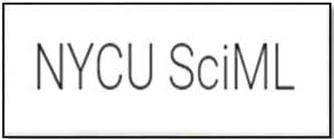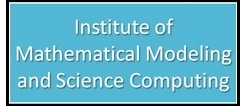Quick Links
- The Department invites applications for graduate studies at the Master level in the following two programs: “Analysis and Geometry” and “Combinatorics”. Transfer from one program to the other will not be accepted within the first year of enrollment. A Student who would like to do a transfer of program has to complete at least 6 credits of required course-work in the original program (3 credits for each semester) and make a formal request to the Department during the second semester of the first year of enrollment. The student’s request for a transfer of program has to be approved by the curriculum committee.
- A Master student is required to identify his or her perspective advisor(s) before the second semester of the first year of study starts. In order to continue to register as a Master student in the second semester, the student has to obtain the approval of his or her choice of advisor from the curriculum committee. Advisors should be professors in the Department. However, a student may choose to have his or her course-work to be co-advised simultaneously by a faculty member from another department (or another university) and a full-time faculty member from the Department. The Department’s chair has the responsibility to assist a student in finding a co-advisor whenever such need may arise. Any future change of (thesis) advisor has to be approved and finalized by the curriculum committee. In the case when the original thesis advisor and the student disagree over the student’s request for the change of advisor, the curriculum committee will convene a meeting to settle the conflict.
- Master students are required to complete their degrees within two to four years, while part-time students are allowed two to five years to complete their degrees. The completion of 24 credit hours of course work during the term of study is one of the requirements for the Master degree. Students with outstanding academic performances can apply directly for the doctoral program offered by the Department or apply to graduate within one year. For those students who would like to graduate within one year, the curriculum committee will organize a special group consisting of researchers or scholars in related areas to inspect the qualifications of the applicants. Master students should study full-time at the Department in general. A part-time student may reduce the study-hours up to half of that of a full-time student through obtaining permissions from the (thesis) advisor and the Department chair.
- Credits which have been earned from graduate-level course work prior to the student’s enrollment in the Master Degree program and which have not been counted as graduation- credits for the student’s bachelor degree might be accredited with the approval from the curriculum committee. The accredited credit-hours as contributed from courses not being taught by our faculty members should not exceed 6 credits.
- Immediately after completing the required courses and finishing the Master thesis, a Master student should apply for his or her Master degree examination. An examination committee consisting of three to five members (including the advisor) should be suggested by the (thesis) advisor. Any individual which is selected as a member in the examination committee should have the minimal academic qualification either as a post-doctoral researcher, an assistant professor, or an assistant researcher at Academia Sinica. Moreover, at least one-third of the committee members should be faculty members from another department (or from other universities). After being approved by the curriculum committee, the list of suggested examination committee members should be finalized by the University president.
- After passing the Master degree examination, the student is qualified to apply for a Master degree. A student who fails to pass the Master degree examination and who has not yet reached the maximal duration of his or her term of study will be allowed to retake the examination before the expiration of his or her term of study. The Master degree examination can only be retaken once. In order words, a student failing the qualifying examination twice will be expelled from the Master program.
- Master students who wish to change to the doctoral program of the Department should hand in their applications during the registration period of the University doctoral program entrance exam, and will have to go through the same examination process with all other examinees. After passing these exams, the applicant may make a formal request to the University for admission to the doctoral program of the Department.
- In the case if a student getting direct admission into the doctoral program would like to transfer back into the Master degree program, he or she has to go through an assessment conducted by the curriculum committee. The curriculum committee will then report the student’s case to the University in order to obtain approval from the University to finalize the change of the student’s academic status.
- The Master degree course regulations in the department are as follows:
Common Requirement: passing the “Colloquium” at least twice
Individual Requirements:
“Analysis and Geometry” program: passing the course “Real Analysis (I)” which is of 3credits; another 3credits has to be taken and completed from one amount the following list of courses: “Real Analysis (II)”、Ordinary Differential Equations(I) 、Ordinary Differential Equations(II) 、Partial Differential Equations(I) 、Partial Differential Equations(II)、Modern Algebra(I) 、Modern Algebra(II) 、Advanced Probability.
“Combinatorics” program: passing the course “Topics in Discrete Mathematics” at least twice; passing the course “Graph Theory” which is of 3 credits; passing the course “Introduction to Combinatorics” which is of 3 credits
- Any regulations or rules not being indicated above shall be processed according to related rules which pertain to the degree-awarding law, and the University Master and Ph.D. degree-awarding policy.
- The regulations as demonstrated here are prepared by the Department curriculum committee. These regulations have been effective immediately after they were reviewed successively by the college curriculum committee and the University curriculum committee, and approved during the academic affair meeting. Any future revision(s) of this guideline shall follow the same procedure.
Top
- A master student is required to identify his or her perspective advisor(s) before the second semester (of the first year of study) starts. In order to continue to register as a master student in the second semester, the student has to obtain the approval of his or her choice of advisor from the curriculum committee. Students’ Advisors should be faculties in the Department in general. However, a student may choose to have his or her course-work to be co-advised simultaneously by a faculty member from another department (or another university) and a full-time faculty member from the Department. The Department’s chair has the responsibility to assist a student in finding a co-advisor whenever such need may arise. Any future change of (thesis) advisor has to be approved and finalized by the curriculum committee. In the case when the original thesis advisor and the student disagree over the student’s request for the change of advisor, the curriculum committee would have to convene a meeting to settle the conflict.
- Master students are required to complete their degrees within two to four years, while part-time students are allowed two to five years to complete their degrees. The completion of 24 credit hours of course work during the term of study is one of the requirements for the Master degree. Students with outstanding academic performances can apply directly for the doctoral program offered by the Department or apply to graduate within one year . For those students who would like to graduate within one year, the curriculum committee will organize a special group consisting of researchers or scholars in related areas to inspect the qualifications of the applicants. Master students should study full-time at the Department in general. A part-time student may reduce the study-hours up to half of that of a full-time student through obtaining permissions from the (thesis) advisor and the Department chair.
- Credits which have been earned from graduate-level course work prior to the student’s enrollment in the Master Degree program and which have not been counted as graduation- credits for the student’s bachelor degree might be accredited with the approval from the curriculum committee. The accredited credit-hours as contributed from courses not being taught by our faculty members should not exceed 6 credits.
- Immediately after completing the required courses and finishing the Master thesis, a Master student should apply for his or her Master degree examination. An examination committee consisting of three to five members (including the advisor) should be suggested by the (thesis) advisor. Any individual which is selected as a member in the examination committee should have the minimal academic qualification either as a post-doctoral researcher, an assistant professor, or an assistant researcher at Academia Sinica. Moreover, at least one-third of the committee members should be faculty members from another department (or from other universities). After being approved by the curriculum committee, the list of suggested examination committee members should be finalized by the University president.
- After passing the Master degree examination, the student is qualified to apply for a Master degree. A student who fails to pass the Master degree examination and who has not yet reached the maximal duration of his or her term of study will be allowed to retake the examination before the expiration of his or her term of study. The Master degree examination can only be retaken once. In order words, a student failing the qualifying examination twice will be expelled from the Master program.
- Master students who wish to change to the doctoral program of the Department should hand in their applications during the registration period of the University doctoral program entrance exam, and will have to go through the same examination process with all other examinees. After passing these exams, the applicant may make a formal request to the University for admission to the doctoral program of the Department.
- In the case if a student getting direct admission into the doctoral program would like to transfer back into the Master degree program, he or she has to go through an assessment conducted by the curriculum committee. The curriculum committee will then report the student’s case to the University in order to obtain approval from the University to finalize the change of the student’s academic status.
- The Master degree course regulations in the department are as follows:
Required: Every master student is required to take and complete the following two courses during the term of study: Introduction to Scientific Computing (3 credits); Methods of Applied Mathematics (3 credits). In addition, every master student has to fulfill the requirement of passing the “Colloquium” for at least twice.
During the term of study, each master student has to earn two interdisciplinary courses which worth a total of 6 credits and three credits of a graduate-level course from the applied mathematics department. Students are encouraged to take interdisciplinary courses outside the applied mathematics department. The above mentioned courses must be approved by student’s thesis advisor. In case that the student does not have a thesis advisor yet, these courses can also be approved by the program director. The above mentioned courses can be counted as a part of total credits for student’s graduation when an acknowledgement sheet, that indicates the course(s) being chosen under thesis advisor or program director’s approval, is submitted to the department office.
- Any regulations or rules not being indicated above shall be processed according to related rules which pertain to the degree-awarding law, and the University Master and Ph.D. degree-awarding policy.
- The regulations as demonstrated here are prepared by the Department curriculum committee. These regulations have been effective immediately after they were reviewed successively by the college curriculum committee and the University curriculum committee, and approved during the academic affair meeting. Any future revision(s) of this guideline shall follow the same procedure.
Top




